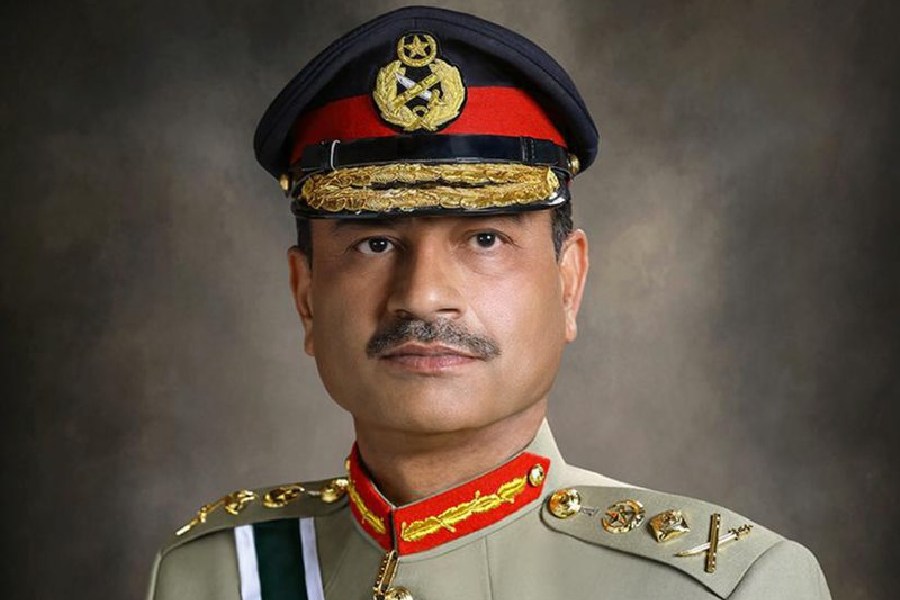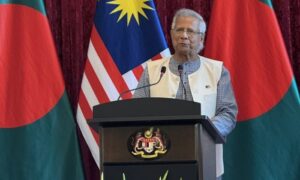
A politically volatile nation where the military has long cast shadow over civilian rule, the self-appointment of General Asim Munir to Field Marshal hints at Pakistan’s evolving power structure. Elevated to the prestigious rank in May this year – just after suffering massive losses in the military standoff with India, Munir is now the unchallenged nucleus of Pakistan’s civil-military establishment.
With Prime Minister Shehbaz Sharif increasingly side-lined, Munir has emerged as the de facto head of state, wielding unprecedented authority over not just defence policy, but also foreign relations, economic planning, and domestic governance. As Pakistan struggles with financial instability, diplomatic isolation, and insurgent violence, Munir’s rise signals a consolidation of military control that blurs the line between uniformed command and national leadership. His elevation underscores just how deeply entrenched is the military dominance.
Munir’s promotion marks only the second such elevation in Pakistan’s history, the first being General Ayub Khan in 1959. The civilian government, led by Prime Minister Shehbaz Sharif, backed the decision, citing his “superior strategy and courageous leadership” during Operation Bunyan‑un‑Marsoos, the military’s response to India’s Operation Sindoor. Cabinet approval came swiftly and without meaningful opposition.
The rank comes with unparalleled immunity and a lifetime tenure, far beyond the reach of civilian or judicial reversal. As a Field Marshal, Munir holds a crown-like authority over Pakistan’s military and, by extension, its polity.
Munir continues to serve as army chief, with his term extended through to November 2027. Many believe of creeping militarisation, signalling a trouble in Pakistan’s power dynamics. Several recent incidents highlight the growing public anger against him. From the streets of Lahore and Peshawar to the hills of PoK and Balochistan, there is growing unrest — not just against the collapsing economy or increasing repression, but against the man many accuse of orchestrating it all. Domestically, Munir’s rise has coincided with a crackdown on political opposition. PTI and its leadership remain sidelined: Imran Khan is imprisoned, his party barred from elections. The judiciary, media, and civil society have been pressured or curtailed; dissenting judges and journalists face retaliation for questioning election fairness or military overreach.
For India, Munir’s elevation signals Pakistan’s deepening tilt toward military-led policymaking, with less leeway for civilian diplomacy and de-escalation. India must remain vigilant: bolster surveillance, reinforce strategic deterrence, and deepen diplomatic outreach to isolate extremist sympathies within Pakistan’s military and expose its alliance with terrorist networks.
Munir’s recent visit to the US and meeting President Donald Trump have raised eyebrows globally. The unusual setting — a closed-door luncheon in the White House’s Cabinet Room without the presence of any Pakistani civilian leadership — has fuelled concerns about Pakistan’s civil-military imbalance, both at home and across the border.
As reported by Dawn, one of Pakistan’s leading newspapers, the meeting marked a rare moment in US-Pakistan relations. For the first time, a sitting American president hosted a Pakistani Chief of Army Staff (COAS) in such an exclusive and high-level setting. Present at the meeting were not just General Munir but also Pakistan’s top intelligence official, Lt Gen Asim Malik, who currently serves as the country’s National Security Adviser. However, absent were key civilian figures — no ambassador, no foreign minister, and most notably, no Prime Minister Shehbaz Sharif. On the US side, Trump was joined by Secretary of State Senator Marco Rubio and Special Representative for Middle Eastern Affairs Steve Witkoff. During the visit, Munir nominated Trump for the Nobel Peace prize, taking the world by surprise!
Meanwhile, India’s Defence Secretary Rajesh Kumar Singh criticised the optics of the meeting saying, “It must be an embarrassment to any country that the Military Chief gets invited and the Prime Minister is nowhere to be seen.” He further called the situation as a “structurally imbalanced state where the military essentially has first claim on resources.”


















